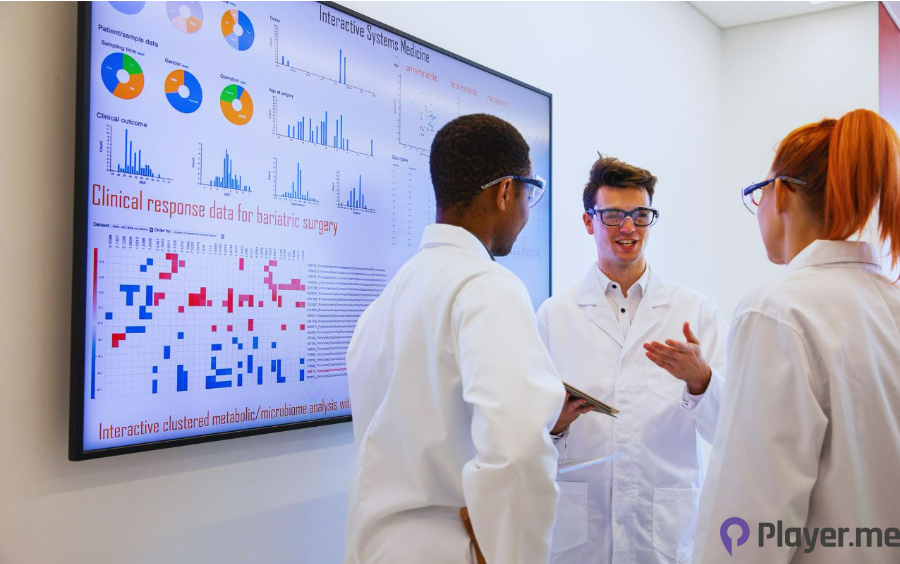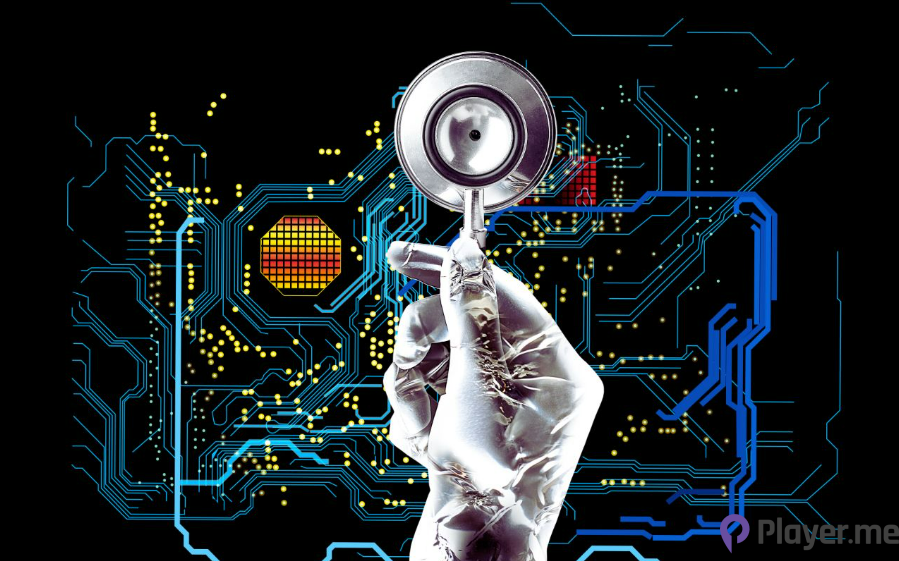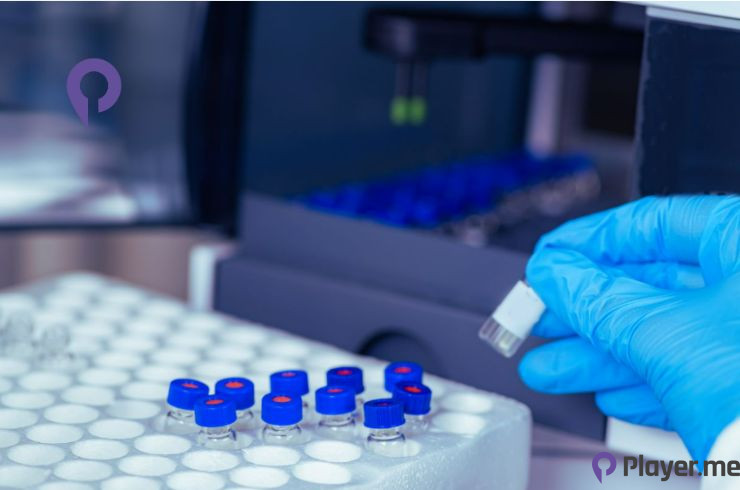The progressive behaviour of technology in this decade is marvellous, resulting in the transformation and revolution of almost every industry. Advanced technologies are altering the functionality and efficiency of various sectors, including healthcare, transport, education, and so on.
Artificial Intelligence (AI), Machine Learning (ML), and other advanced technologies have currently made a relevant buzz in the market. In medical care, drug development is essential for conserving and protecting human lives. Despite its immense importance, it costs deep pockets for pharmaceutical companies in developing medicines, which indirectly affects consumers.
Another aspect of drug development is bias and lack of equity in drug development. This leads to a less effective drug market, which alleviates the mitigation of diseases and severe health concerns. On the other hand, the breathtaking progress of AI in this decade appeals to drug-developing companies to look into achieving data diversity through AI in drug development.
Related: AI Helps a Stroke Patient Speak Again, a Milestone for Tech and Neuroscience
Data Diversity Through AI in Drug Development

Drug development is a systematic process involving different stages, from research to lab work to drug testing. This process is quite expensive and time-consuming since a report reflects the global pharmaceutical market in 2022 to be $1.48 trillion. The data research determines the success and efficiency of the developed drug as it analyses people and patients of different demographics and differentiated stages of the disease.
Human-driven data research and analysis may sometimes be subjected to bias and geographic factors. The geographic factor may cause bias in terms of the population of the area. Furthermore, the contribution of medical doctors and clinicians may vary based on the patient volume in the given area. All these factors may result in contrasting data, necessitating the employment of AI technology.
AI is proficient with the use of ML algorithms and models which analyse large amounts of data swiftly and come with computer instructions to provide results. ML algorithms work based on the history of events and activities of individual patients, including lifestyle, daily activities, and more. It may also streamline the data analysis regardless of geographic factors, as ML algorithms may access your smartphone data. Thus, achieving data diversity through AI in drug development can become facile.
Role of AI in Medical Care
The existing function of AI is beyond imagination, and it seems like a fiction coming true when a machine-based system can work with the same or even better human cognitive abilities. It is worth noting that AI is still in its developing phase, reflecting the future possibilities of the technology that may go beyond human power.
With its role in different industries, AI is a prominent system helping the healthcare and medical fields to the fullest. AI can help diagnose medical concerns early, leading to quick and effective treatment at early stages. Furthermore, AI systems offer excellent assistance to existing medical experts to double the impact of treatment against an ailment.
Chinese scientists are putting relentless efforts into developing AI systems with 75 times more efficiency for robust functionality. You can read about it by clicking here. With a developing attitude, AI will take drug development to the next level and improve other healthcare areas, including neurology, radiology, and more.
The Importance of Data Diversity Through AI in Drug Development

Like any other industry where AI plays a crucial role, incorporating AI into drug development and medical care is equally productive and lucrative in terms of boosting patient experiences and treatments. Time and money are the two essential factors in every walk of life, and in medicine, time is invaluable. The best thing about AI and its functionality is its swiftness and time-saving operations.
Data diversity, on the contrary, carries immense weightage in terms of importance since it offers effectiveness to the developed drug. Diverse data helps drug-developing companies manufacture globally effective drugs, boosting the mitigation of the target diseases and infections. One case study of AI-driven drug development is the use of zero-shot generative AI to manufacture de novo antibodies by AbSci in January 2023.
Furthermore, Insilico Medicine employed its generative AI platform, Pharma.ai, in February 2023. The AI-driven drug treated idiopathic pulmonary fibrosis, and the Food and Drug Administration (FDA) of the U.S. approved the drug. In essence, AI’s data diversity may help in the production of personalised medicines to treat rare medical concerns in humans.
The Future of Drug Development

With AI on the horizon, drug development and other medical areas may seem futuristic. The potential of AI is evident from its existing applications in the medical landscape with AI doctor imagining and neuroscience breakthroughs. The data diversity through AI in drug development is a pathway which needs further exploration, resulting in improved and effective treatment of benign and severe ailments.
Furthermore, AI is dominant in assisting human surgeons in efficient medical treatments. From early diagnosis and risk prediction to customised rehabilitation for patients, AI has many benefits to humans. However, the AI model must be considered as it uses ML algorithms which may read patients’ data, leading to privacy and security concerns.
While some experts dig deeper into the privacy concerns of AI, here is a complete guide to AI regulations and safety measures to keep you safe in this digitally dominant era. The AI-based drug development companies have come forward in their defence by stating that the users’ data always remain anonymous, alleviating the risks linked to it while helping humanity in the long run.
Final Verdict
AI and advanced technologies are the modern solutions for human issues. Technology offers convenience to humans and has a positive impact on fighting off medical concerns. In drug development, the role of AI is tremendous in many ways.
First, it offers early diagnosis of diseases through AI doctor imaging, which helps physicians and surgeons to effectively carry out treatment. It also improves drug development with unbiased and vast data through data diversity to increase the efficiency and impact of the developed drug. Thus, AI is the futuristic technology that will transform the medical industry in the coming years.
Author Profile
Latest entries
 GAMING2024.06.12Top 4 Female Tekken 8 Fighters to Obliterate Your Opponents in Style!
GAMING2024.06.12Top 4 Female Tekken 8 Fighters to Obliterate Your Opponents in Style! NEWS2024.03.18Elon Musk’s SpaceX Ventures into National Security to Empower Spy Satellite Network for U.S.
NEWS2024.03.18Elon Musk’s SpaceX Ventures into National Security to Empower Spy Satellite Network for U.S. GAMING2024.03.17PS Plus: 7 New Games for March and Beyond
GAMING2024.03.17PS Plus: 7 New Games for March and Beyond GAMING2024.03.17Last Epoch Necromancer Builds: All You Need To Know About It
GAMING2024.03.17Last Epoch Necromancer Builds: All You Need To Know About It





